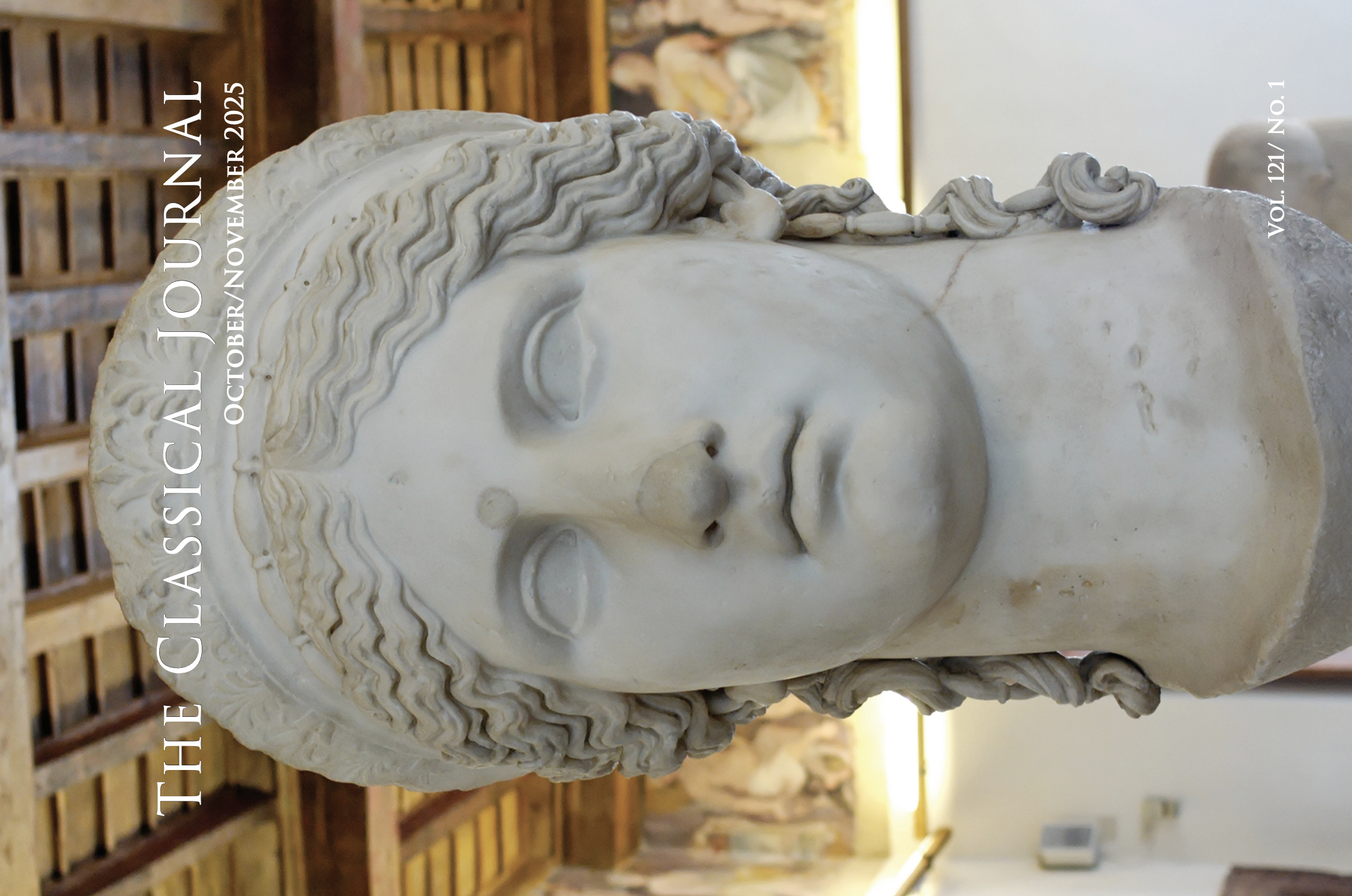The following articles are contained in CJ
111.4
Abstracts of Articles
COURT REFORM, KLĒRŌTĒRIA, AND COMIC TESTIMONY
In fourth-century Athens jurors were assigned to ten sections in the tribe (A–K), then selected for duty (or excluded from it) in a multi-stage lottery. Scholars have assumed that jurors were assigned to their sections randomly, by lottery among the whole tribe. This paper argues that the letter-sections originally represented a framework for regional balance. The procedure described in Ath. Pol. and illustrated by surviving artifacts evolved from later developments, but early adaptations are reflected in scenes from comedy, and these together with other testimonies suggest that the letters were initially assigned by deme or trittys, to assure equal opportunities for jury service.
CONGENITAL VIRTUE: MOS MAIORUM IN CICERO’S ORATIONS
Cicero’s appeals to antiquity with the term mos maiorum, or simply maiores, in his orations enable the orator to appeal to his audience’s emotions, and to highlight their collective identity and cultural heritage as the proper basis for the decision he advocates. His usage is not strongly correlated with any chronological or generic subset of the orations, as is shown by a simple statistical analysis of their distribution. It is better understood as a strategic response to the circumstances particular to each oration, in a less formal sense.
RECONSIDERING SOME PLAUTINE ELEMENTS IN PLAUTUS (AMPHITRYO 302–7, CAPTIVI 80–4)
Abstract: This paper supplements my Funny Words in Plautine Comedy (2010) by reinterpreting two famous “Plautine elements in Plautus.” Part one (on Amphitryo 302–7) argues that the pun on Quintus (the name) and quattuor, “four,” translates a pun in the Greek model on Pentheus and tettaras, “four.” Part two (on Captivi 84) argues that rurant, “they are in the countryside,” should be rorant, “they are glistening,” sc. unguento, “with after-bath oil.” The examples suggest Plautus’ genius lay as much or more in inspired translation as it does in his “originality.”
WHO KILLS TURNUS? “PALLAS” AND WHAT AENEAS SEES, SAYS AND DOES IN AENEID 12.939–52
Abstract: In this paper I read the closing scene of the Aeneid through Aeneas’ final speech, asking: What does it mean for Aeneas to say “Pallas te hoc vulnere, Pallas / immolat” at Aeneid 12.948–9? Drawing on intertexts from Iliad 22 and 24, I trace a sequence of thoughts suggested by the movement of Aeneas’ eyes over Turnus’ body. Quasi-cinematic features of 12.939–52 place the visible splendor of Pallas’ balteus in tension with its horrifying past. Killing Turnus heals the resulting split between Aeneas’ vision and his memory by reinstating the baldric’s previous owner, binding Aeneas’ and Pallas’ lives together inexorably against Turnus’ survival.
JOCASTA’S CATILINARIAN ORATION (SEN. PHOEN. 632–43)
As Seneca’s Jocasta pleads with Polynices to cease his assault on his homeland and return into exile, she borrows language from Cicero’s In Catilinam 1 and Sallust’s Bellum Catilinae. As a result, Seneca brings the mythological world of the Phoenissae into dialogue with a moment of strife from Rome’s past at a crucial moment in the unfinished tragedy’s action. In doing so, the playwright uses the memory of Catiline to foreground Jocasta’s fraught relationship with the citizen enemy to whom she gave birth.
MŌCHOS THE PHOENICIAN SAGE IN AMPELIUS
Ampelius 2.7 explains that Libra honors the inventor of the balance, the puzzling and much-emended personal name MOCHOS. Emendation is unnecessary: “Mōchos” is attested as an early Phoenician sage of Sidon, by Poseidonios, and in a translation by the Platonist Ofellius Laetus (ca. 75 CE). Ampelius may have drawn Mōchos and Libra from Ofellius, or like much of his lore on zodiacal constellations, from Nigidius, or from another unknown source. Ampelius explains two other zodiacal constellations similarly: Capricorn (2.10) honors Pan’s defeat of Typhon in Egypt, and Pisces (2.12) honors Venus’ birth from an egg found in the Euphrates.


